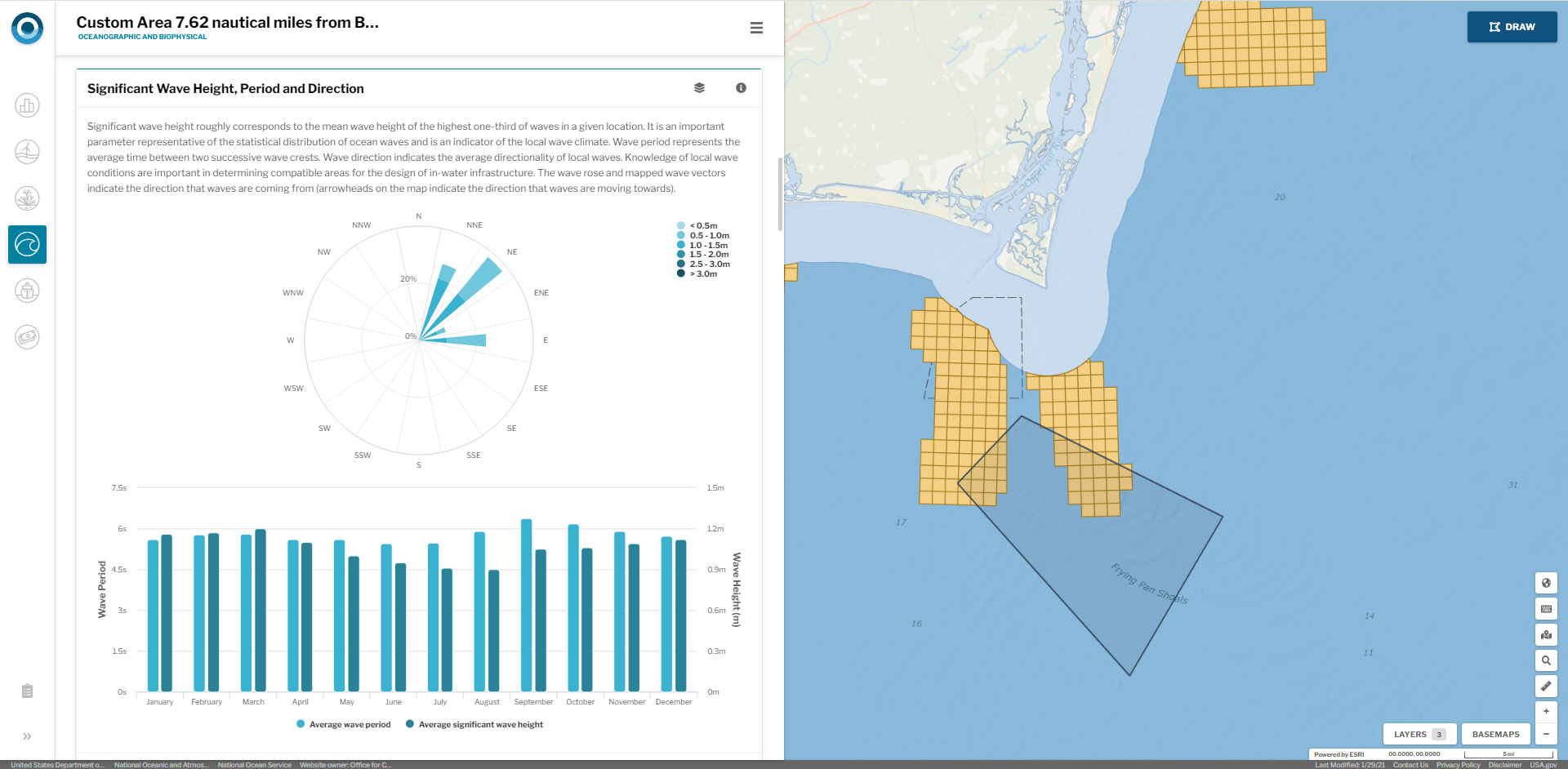Issue
The Bureau of Ocean Energy Management (BOEM) needed to assess the feasibility and environmental effects of harvesting sand in the Frying Pan Shoals area offshore of Wilmington, North Carolina. The area, considered Essential Fish Habitat and an Aquatic Resource of National Importance, required expert input and a complete investigation before the abundant sand resources could be used.
Process
To gain this necessary input, BOEM held a workshop in fall of 2020 attended by scientific and academic experts in specific habitat types, dependent species, and oceanographic processes in the area. BOEM used the OceanReports tool in an interactive way to outline the study area to give attendees a spatial reference, and highlight environmental information, sensitive habitats, and other sand resources in the Frying Pan Shoals area. BOEM also used the tool during breakout sessions to display seasonal and annual average oceanographic processes important to sediment transport and larval fish movement. The tool revealed potential use conflicts that might arise near cabling to support the proposed nearby Wilmington East wind project. OceanReports allowed participants to view map results, provide their expert opinions related to impacts, and explore alternative locations in real time.
Impact
Using the results of the workshop, BOEM published a report and is now funding an environmental study to fill important data gaps. The research will assist in making wiser sand-resource leasing decisions. (2023)

